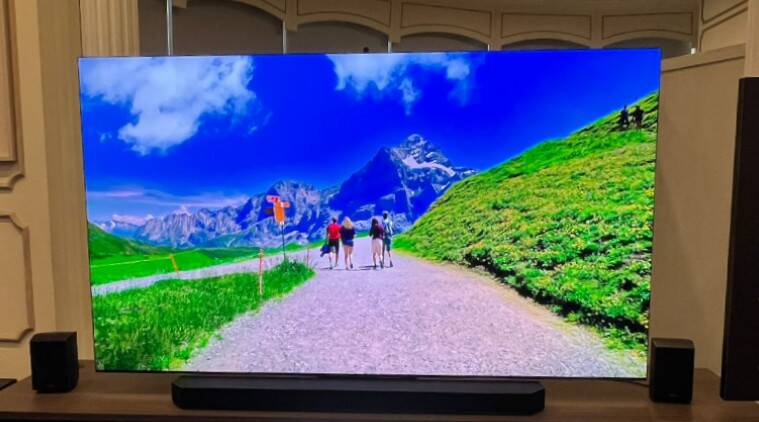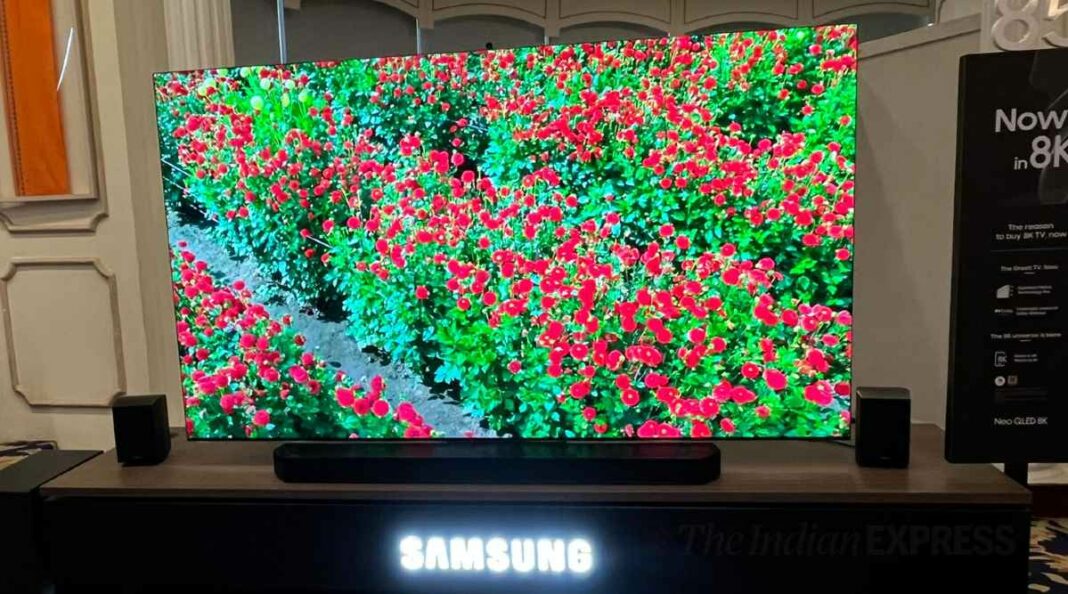Aspirational shoppers in India are increasingly switching to Samsung’s high-end QLED TVs, with the South Korean giant expecting the segment to grow three times in the foreseeable future. Despite being a niche category in the overall TV segment, Samsung hopes consumers flush with cash will continue to expand the category of premium TVs where the company has over 50 per cent market share. In fact, Samsung is looking to increase its market share to over 65 per cent.
“At large, consumers want the best picture quality and sound quality, and these TVs deliver on that,” Mohandeep Singh, Head of Sales, Marketing and Operations, Consumer Electronics Business, Samsung India, told indianexpress.com on the sidelines of the launch of its flagship Neo QLED 8K and 4K panels.
Samsung is challenging its rivals in the top-end TV space with a new “Quantum Matrix Technology” (QLED) that utilises MiniLEDs to produce improved sharp picture quality, brighter imagery, and contrast levels that fare against OLED panels.
 Samsung is challenging its rivals in the top-end TV space with a new “Quantum Matrix Technology” (QLED) that utilises MiniLEDs to produce improved sharp picture quality. (Express Photo)
Samsung is challenging its rivals in the top-end TV space with a new “Quantum Matrix Technology” (QLED) that utilises MiniLEDs to produce improved sharp picture quality. (Express Photo)
The flagship range, which is available in 65 and 85-inch sizes, comes with Samsung’s Neural Quantum Processor 8K with AI, an improved 144Hz refresh rate (from 120Hz), and the ability to upscale non-8K content (including 1080p and 4K YouTube and Netflix videos). They are slim and bezel-less and have built-in top-firing speakers at the back to create an immersive top-down audio experience.
But Samsung’s Neo QLED TVs are pricey, starting at Rs 1,14,990 and with the 85-inch model with an 8K panel costing as high as Rs 13,00,000.
As the segment of premium TVs grows, the market will also mature, giving rise to aspirational luxury. This is the segment where consumers don’t bother about the cost, but rather look for experience. But does that mean the basic premise of why consumers buy a TV will also change?“The core benefit of a TV remains as a good entertainment device at home,” Singh said. “I think in the near future, that core is not going to change but it is going to quickly evolve.”
A larger trend Singh has observed is how consumers are ready to adopt new technology at a faster rate. For instance, 8K is far from mainstream but eventually, 8K TVs will get cheaper and get the content. “8K will get adopted very fast,” Singh said, adding that while there is no adequate ecosystem available, he sees consumers will take up the newer technology for one of the core benefits that it provides, “which is picture quality.”
